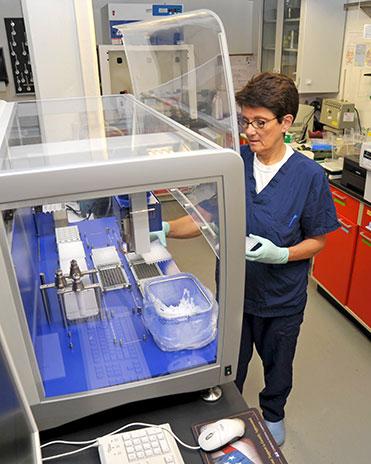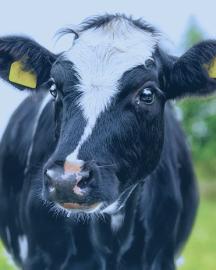Using Gene Editing To Develop an African Swine Fever Vaccine

ARS scientists at the Plum Island Animal Disease Center in Orient Point, NY, are using gene editing to assist in the development of a vaccine for African swine fever (ASF). Some viral strains of ASF cause near-100-percent mortality in swine, and ASF outbreaks result in trade restrictions and significant economic losses globally.
The risk of ASF introduction into the United States cannot be underestimated. There is no commercially available vaccine to prevent ASF, and there are no molecular tools to help develop a safe and effective live recombinant vaccine. Gene editing is a new type of genetic engineering in which DNA can be directly inserted, deleted, modified, or replaced in the genome of a living organism. Unlike early genetic engineering techniques, gene editing directs the modification to specific sites. ARS scientists investigated the use of the “CRISPR-Cas9” gene-editing system as a potentially more efficient system to produce live (but attenuated) recombinant ASF viruses. These attenuated viruses are candidate vaccines. Compared to traditional genetic engineering techniques, the CRISPR-Cas9 system resulted in the successful development of a recombinant ASF virus in record time. These results demonstrate the potential advantage of using CRISPR/Cas9 over traditional methods and should significantly improve the ability to develop a first-generation modified live ASF vaccine.
Related Information
Article: Commercially Available Cell Line Rapidly Detects African Swine Fever Virus




